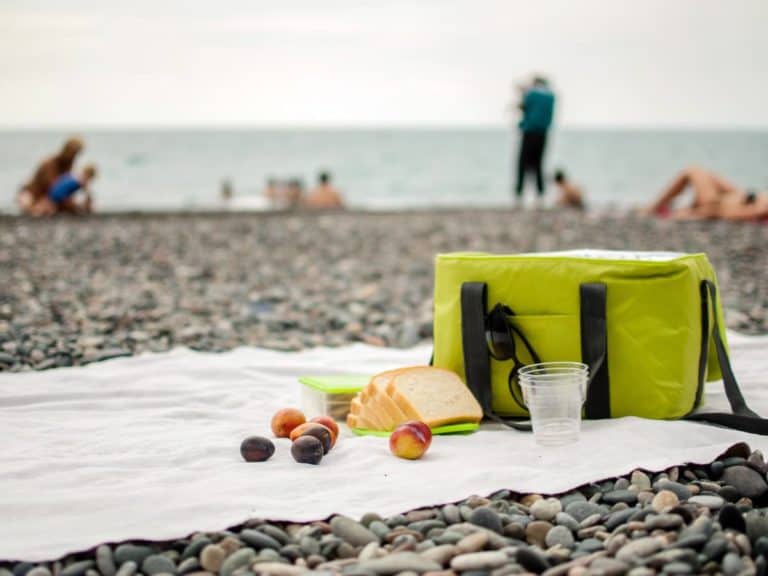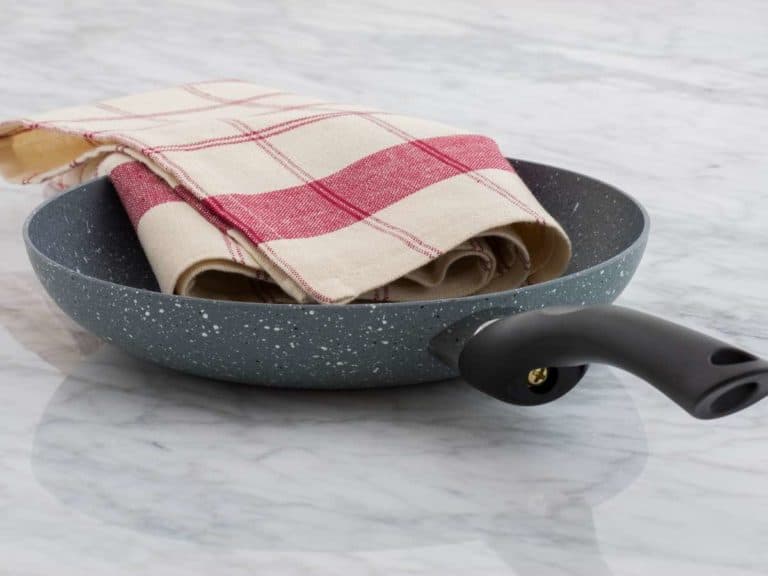How to Store Oranges Properly Long and Short Term
Some of the most popular and easily recognizable fruits out there are oranges. They are pocket-friendly, delicious, and nutritious. Because of this, having some fresh oranges available at home all the time is a fantastic idea. And now you may be thinking about how to store oranges properly.
Oranges can be stored in the refrigerator for up to two months. They can be stored in the freezer, too, where they will keep for up to one year. They are still safe to consume after a year. However, the quality may no longer be great. Oranges may be dehydrated to make them last for up to one year.
Getting your hands on fresh and ripe oranges is the first step to make these health-giving citrus fruits stay in superb condition for as long as possible.
Below, we will talk about how to shop for oranges and other matters that you need to know if you want to store oranges anywhere from a couple of weeks to a couple of months.

How to Pick an Orange at the Store
The color is the main deciding factor when shopping for oranges. Needless to say, their skin should be bright orange in color. They also have to be smooth, free of wrinkles, discoloration and mold. Being firm and heavy is a telltale sign that they are juicy. The ripest oranges emit a sweet smell.
Before having oranges at home that you can snack on or cook at any given time, you should first buy nothing but the freshest oranges that you can spot at the supermarket
Luckily, it’s easy to tell good oranges apart from bad oranges. For the most part, all you have to do is take a quick look at them — if they don’t impress your eyes, they should not make it to your shopping cart.
Don’t be afraid to use your sense of sight, smell and touch if you want nothing but oranges that you can store for a long time.
When shopping for fruits, it is generally a good idea to go for those that are not fully ripe. That’s because they tend to keep longer, thus saving you from ending up eating something mushy.
Here’s a quick word of caution: NEVER buy unripe oranges at the store.
Unlike most fruits, oranges stop ripening the minute that they are picked. In other words, green oranges will no longer ripen and turn orange.
There is no point in looking for online articles on how to store oranges to ripen as they do not exist. And even if you happen to come across one, its author is lying through his or her teeth.
Besides, health authorities say that you should not eat unripe oranges. It’s for the fact that they have too much citric acid, which is unsafe for humans.
Aside from tasting bitter, unripe oranges may also give you a bad stomach ache if you eat them. Go for nothing but ripe oranges as you can keep them fresh by storing them the right way.
How can I tell if an orange is bad?
Oranges that are no longer firm to the touch are already overripe and about to rot anytime soon. They are bad if they are discolored or have a white mold, which will turn to green in no time. Oranges that have a fermented or rotten smell are not safe to eat. They should be disposed of right away.
Aside from knowing the steps on how to know when store oranges are ripe, it is also important to know the steps on how to tell if oranges are no longer fit to eat.
How to Store Oranges in the Fridge
Oranges are best placed in the vegetable crisper in the refrigerator where the temperature is just right. To keep the fridge neat and organized, place oranges in a mesh or any other well-ventilated bag. Do not place oranges in a ziploc bag because they need air to stay fresh in the refrigerator.
Earlier, it was mentioned that oranges no longer ripen after they are picked. However, it doesn’t mean that they will no longer spoil — they will go bad in about three weeks at room temperature.
Suppose that the oranges you just purchased have been sitting in the store for about a week.
It means that your oranges only have a couple of weeks left before they become old and no longer delightful to eat.
This is when the benefit of storing oranges in the fridge rather than on a countertop comes in.
In the refrigerator, oranges can stay in tip-top shape for up to two long months.
This helps preserve not only their appearance and taste but also their nutrients.
Oranges are known to be packed with a lot of vitamin C, which helps strengthen the immune system. In this day and age, having a phenomenal immune system can spell the difference between staying healthy and being hooked to a life support system!
Here are some other health perks that come with eating oranges:
- Lowered risk of high blood pressure and heart disease.
- Reduced deadly cancer risk.
- Stronger gums and optimized oral health.
- Improved blood sugar level management.
- Healthier and younger-looking skin, hair and nails.
To keep on enjoying the many health benefits offered by oranges, it is a good idea to have a steady supply of fresh oranges at home. It’s easier to stay in the pink of health by keeping oranges good for a long time.
Related Post: Best Way To Store Baklava: Homemade And Store Bought
When should I throw away an orange in the fridge?
After two months, oranges in the fridge will dry out. It will make them look smaller and shriveled. Sooner or later, oranges will become hard on the outside. While dried out oranges in the fridge are still safe to eat, they are no longer appetizing. They are no longer as nutritious as before, too.
The refrigerator can keep oranges fresh for a long time alright. Sadly, it cannot make them last forever. If you want to keep oranges fresh longer, consider storing them in the freezer instead.
How to Store Oranges in the Freezer
Oranges can be stored in the freezer for a year where the temperature is low enough to slow down the decomposition process by a great deal. Before freezing them, oranges should be placed in a ziploc bag first. Also, as much air as possible should be squeezed out before sealing the plastic bag.
Buying oranges in bulk, just like when buying many other commodities, can help you save some cash. Unfortunately, oranges are perishable items.
If you fail to consume all of them before they go bad, your hard-earned money will go down the drain. It’s a good thing that you can store oranges in the freezer.
In the freezer, oranges can be kept from going bad for up to one year. They may last longer than that. However, the texture and taste will no longer be as nice as fresh oranges.
Oranges contain a lot of juice, which is up to 90% water. In the freezer, water turns to ice. It goes without saying that the juice inside oranges will solidify at very low temperatures.
This can keep oranges from rotting faster than usual. However, after months of being rock-solid, the cells surrounding the juice get damaged.
This damage to food is referred to as freezer burn. It can have an unfavorable effect on a food’s quality.
It’s because of this reason why oranges stored in the freezer for more than a year may no longer be as palatable. They are still safe to eat, but eating them may no longer be as delightful.
Related Post: Grape Molasses Benefits
How to thaw an orange stored in the freezer
To thaw oranges stored in the freezer, they should be allowed to defrost for six hours at room temperature. The higher the temperature, the faster they will thaw. Frozen oranges may be soaked in water for hours, too. It’s a bad idea to thaw them in the oven or microwave because this will cook them.
Just a word quick word of caution: NEVER attempt to peel or slice oranges that are fresh from the freezer. Because of their shape and the fact that they are hard, you may end up slicing off your fingers!
How to Store Cut Oranges
Except when dehydrating them, oranges have to be peeled. The white pith should also be removed, unless one doesn’t mind its slightly bitter taste. The peeled oranges can then be separated into segments or sliced into cubes. They should be protected from air, light and heat by storing them properly.
After peeling or cutting oranges, it is a great idea to consume them as soon as you can. That’s because their vitamin C content begins to degrade as soon as it’s exposed to the elements.
Scientists say that the level of vitamin C in oranges gets damaged by 2% each day from the time that it was cut, sliced, or squeezed.
If you fail to consume oranges as quickly as possible after them undergoing mechanical processing, you won’t be getting high amounts of vitamin C.
Needless to say, do not peel or cut or juice more oranges than you can consume right away. And to slow down the rate of degradation of vitamin C, it’s important that you store peeled or cut oranges properly.
How to store cut up orange
The best way to store cut oranges is by placing them in the fridge. Before doing so, transfer them to a ziploc bag. Cut oranges may also be stored in the freezer where they will keep for a year. Cut oranges at room temperature should be eaten within the day for best results taste- and health-wise.
Again, as soon as the peel is removed or a knife slices through them, the vitamin C content will start to get damaged by the elements. This is why oranges should be consumed as quickly as possible.
Storing them in the refrigerator or freezer can extend the shelf life by a couple of weeks or an entire year, respectively.
But if that’s not an option, make sure that you minimize the exposure of cut oranges to anything that can damage them by following one or all of these steps:
- Place them in a bowl and then cover the bowl with cling wrap.
- Transfer them to a ziploc bag or an airtight container out of plastic or glass.
- Store them away from direct sunlight and appliances that generate heat.
- Keep them submerged in their juice to prevent further vitamin C degradation.
Is it safe to eat the pith of an orange?
Eating the pith of oranges is perfectly fine. As a matter of fact, doing so helps one to enjoy even more of the health-giving perks of oranges. However, the pith should be chewed very well or eaten in moderation. This is true for people with poor digestion, as they may end up with an upset stomach.
According to health experts, the pith, which is the white thing directly under the peel, contains just as much vitamin C as oranges themselves. This means that eating them allows you to get even more vitamin C.
Other than vitamin C, the pith also contains fiber, which is good for the intestines and heart, too.
However, it’s exactly because of being packed with fiber why the pith can cause an upset stomach.
Especially if you fail to chew it very well or you eat lots of it, there is a possibility for you to experience pain in the abdomen afterward.
Unwanted digestive issues can be avoided by chewing the pith thoroughly or limiting the amount you eat.

Storing Oranges by Dehydrating Them
Aside from following the tips and tricks given thus far on how to store oranges long term, there is another thing that you can do to keep oranges in excellent shape for a long time.
It’s none other than by dehydrating them.
Just like other fruits, oranges can be dried with the help of a food dehydrator.
Anywhere from 85% to 95% of moisture in oranges can be removed with the help of a food dehydrator, which you can get for as low as $30. With much of the moisture content removed, oranges can stay around for a very long time.
Bacterial activity — this is one of the reasons why oranges and other fruits rot after some time. Bacteria tend to thrive where there is moisture. Without it, it is unlikely for them to be able to carry out their job.
It’s exactly because of this why dehydrating oranges is a wonderful idea if you want to make sure that there are orange slices that you can get your hands on no matter the time of the day or day of the year.
However, it’s of utmost importance that you dehydrate oranges properly and know the steps on how to store dried orange correctly, too.
Related Post: 10 Best Dehydrators For Fruits And Vegetables
How to store dehydrated oranges
Dehydrated oranges should be stored in an airtight container. They should also be kept in a cool and dry place, away from direct light and sources of heat. If stored properly, dehydrated oranges can keep for up to two long years. It is possible to refrigerate or freeze them for longer shelf life.
It’s true that dehydrating oranges will cause a change in their appearance and texture, as well as a slight change in their taste. However, it will allow you to enjoy them for up to a couple of years!
But just like non-dehydrated oranges, it’s still a must that you store dehydrated oranges the right way if you want them to last for years.
The good news is that they are trouble-free to store.
For as long as you have an airtight container and a pantry or kitchen cabinet, then there is nothing to worry about.
How to rehydrate dried oranges
To rehydrate dried oranges, they should be soaked in hot water — about twice their amount. It will only take about 10 to 15 minutes for the rehydration process to complete. Dehydrated oranges are ready to be consumed if much of the water is gone, and they closely resemble freshly sliced oranges.
When using dehydrated oranges for cooking or baking or making tea or juices, there is no need to soak them in hot water first, unless the recipe requires otherwise.
Just Before You Attempt to Store Oranges
Above, you came across some expert-approved pieces of advice on how to store oranges long term.
By following the ones that suit your needs or preferences there is no need for delicious and nutritious oranges to go to waste.
The journey begins with knowing how to pick a good orange at the store. There is no point in storing oranges the right way to keep them fresh for a long time if they are in terrible condition, to begin with.
The best oranges to purchase as well as store are those that are firm to the touch, sweet to the nose, and beautiful to the eyes.





